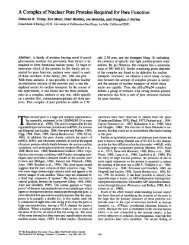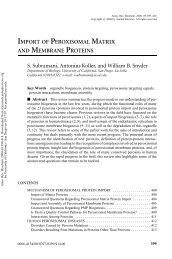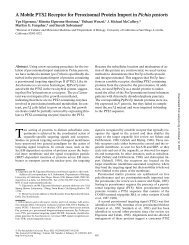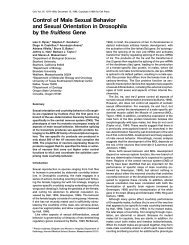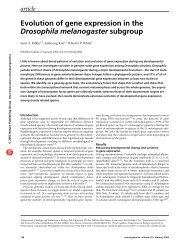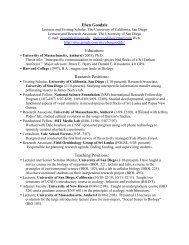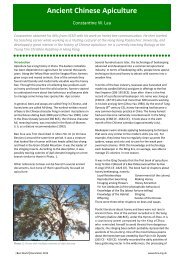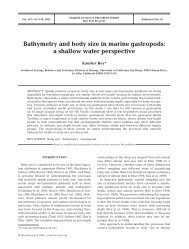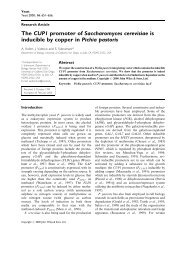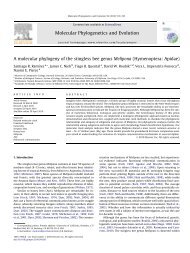Bee Basics - USDA Forest Service - US Department of Agriculture
Bee Basics - USDA Forest Service - US Department of Agriculture
Bee Basics - USDA Forest Service - US Department of Agriculture
Create successful ePaper yourself
Turn your PDF publications into a flip-book with our unique Google optimized e-Paper software.
succession <strong>of</strong> plants flowering from early spring when the queen emerges tolate summer – early fall when the colony dies. Other bees have some degree<strong>of</strong> specialization in foraging; they resort to using pollen from only one or tw<strong>of</strong>amilies <strong>of</strong> flowering plants. Fortunately plant reproduction has redundancy infloral visitation already built in. Each flowering plant species usually has a smallguild <strong>of</strong> bees and other pollinators which coevolved with them to ensure theirpollination. Typically, bees collect nectar from a wider range <strong>of</strong> blossoms thanthey visit for pollen.One example <strong>of</strong> floral specialization is squash bees which are efficientvisitors and pollinators <strong>of</strong> cucurbit plants (squash, pumpkin, and zucchini).Blueberry bees, globe mallow bees, and cactus bees are also floral specialists.Some bee species are active only for a few weeks during the growing seasonand depend on just a few families <strong>of</strong> flowering plants for theirforaging needs. <strong>Bee</strong>s in the genus Macropis depend onlyon loosestrife flowers (Lysimachia) from which theycollect oil and pollen for their larvae’s food. Loosestrifeflowers however, have no nectar available so beesin the genus Macropis must visit other flowers fortheir nectar needs. One highly specialized bee isAnthemurgus passiflorae. This bee is onlyknown to forage on yellow passionflower(Passiflora lutea).Female Macropis nuda bees collectfloral oils from specialized glands <strong>of</strong>the spotted loosestrife (Lysimachiapunctata).11



